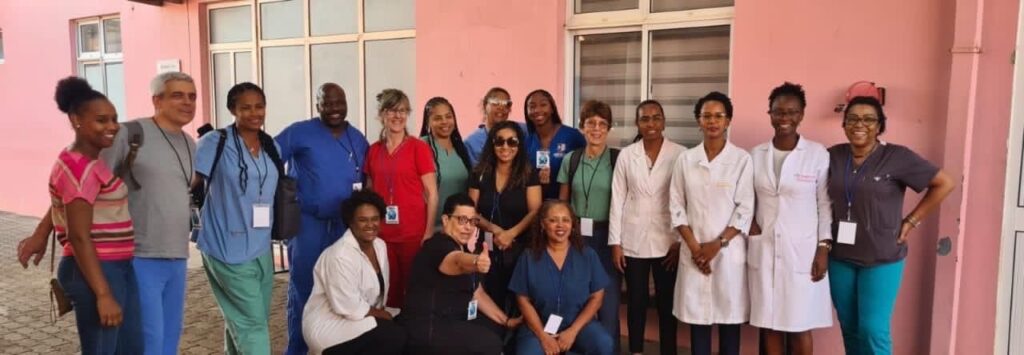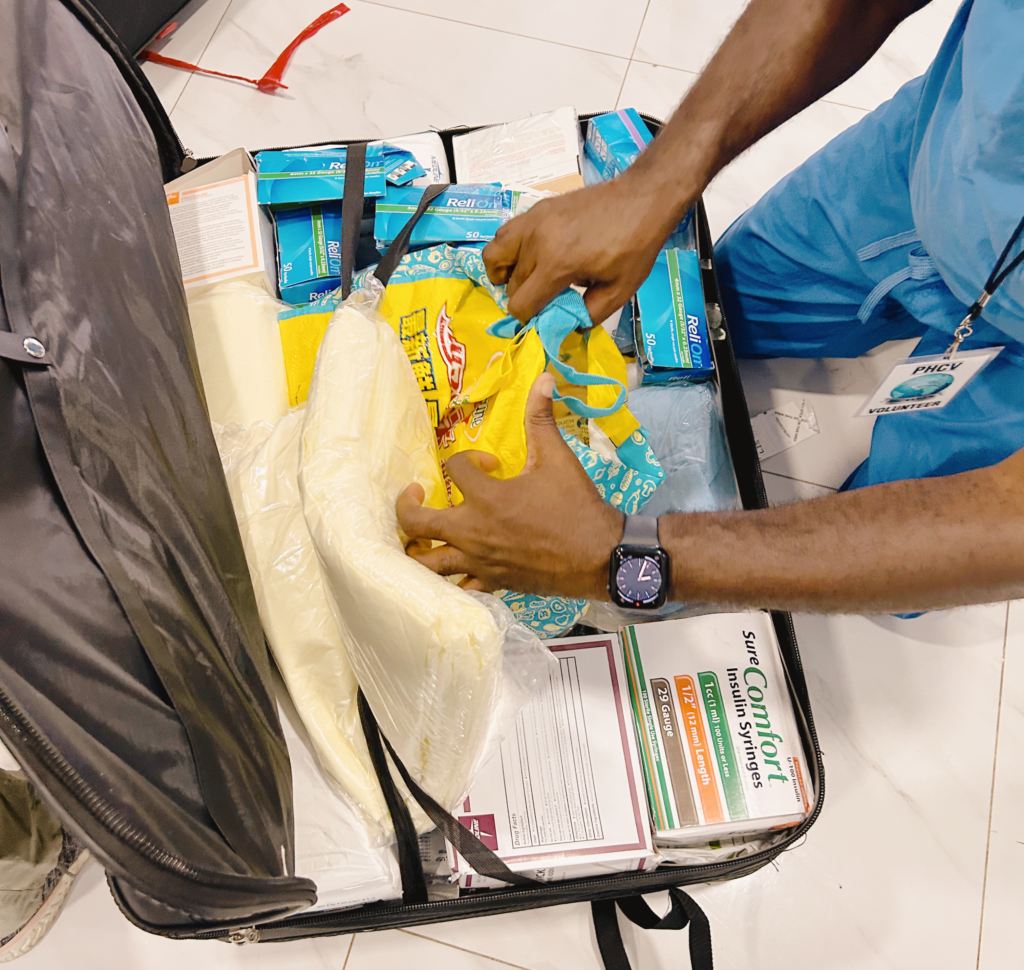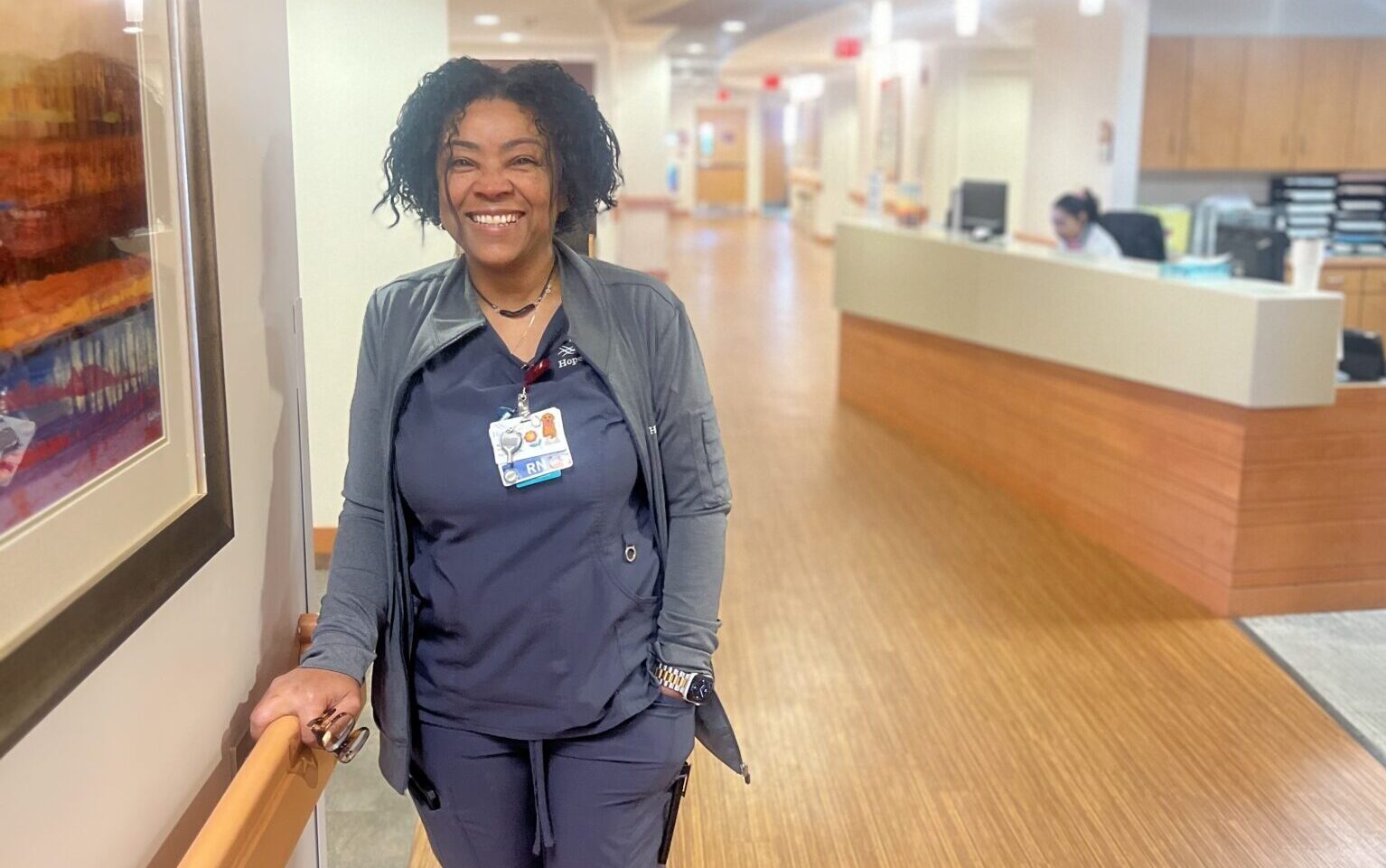By the time Natalina Gomes was 8 years old, she had made up her mind to become a nurse. At that time, her family was living in Cape Verde, an island nation off the western coast of Africa. Natalina had been born on one of its northernmost islands, and spent her early childhood there.
By the time Natalina was 9 years old, her parents had made a big decision of their own: They were moving the family to the U.S. They loved Cape Verde, but they wanted an even better education for their children.
Their sacrifice paid off. Today, Natalina is a hospice nurse at HopeHealth’s Hulitar Hospice Center, doing work she cherishes. Here, she uses her medical expertise to care for patients who are at the end of life, ensuring their final moments are filled with comfort and dignity.
“I’ve been at the Hulitar Center 11 years, and I truly love it. It’s the most rewarding job,” Natalina says.
Then, last year, she fulfilled another long-time promise to herself: to bring her nursing skills back to Cape Verde. In 2023 she traveled there as a medical mission volunteer, determined to help others.
As it turned out, the experience also changed her.
“I want to give back”
“I always said that once my kids are grown and graduate college, I want to use my skills and join a medical mission trip,” says Natalina.
And so, a few years ago, she threw herself into researching local organizations. She fell in love with Project Health Cape Verde (CV) — an all-volunteer nonprofit that directs medical care, training and equipment to Cape Verde. By chance, the mother of her daughter’s best friend was a founder, Ernestina Moreira.
At first, due to the pandemic, Natalina volunteered locally with Project Health CV, educating Rhode Island’s many Cape Verdean communities about COVID-19 and the vaccine. In 2023, she got the chance she’d been waiting for: her first medical mission trip to Cape Verde.
“It was a blend of excitement and nervous anticipation,” she remembers. She’d been back many times as an adult to visit family on Saõ Vicente, the island where she grew up. But she had never spent time in the local hospitals.
In November, about 20 Project Health CV volunteers flew to Cape Verde’s capital city, Praia, on the island of Santiago. From there, Natalina and a smaller team split off for the interior city of Assomada, where a hospital awaited them.

“We were not going to turn anyone away”
At first, as she toured the hospital in Assomada, Natalina found herself in disbelief. They were running short on equipment and supplies.
“I’d had no clue what I was going to be walking into. It truly, truly opened my eyes to the things we take for granted in America,” Natalina says.
At the same time, she felt an overwhelming sense of purpose.
“Every moment was a chance to provide assistance to those who need it most,” she says. “They were extremely grateful that we were there.”
The Project Health CV team had brought their own supplies, and got to work setting up a makeshift clinic. For four rewarding days, they provided free medical care, screenings and healthcare education to the people who needed it the most.
“From the time we got there, we did not stop. The people were lined up to see us,” says Natalina. “These are people who struggle to make a living. But they know Project Health CV comes each year to help and they look forward to that. It’s something they can count on. And we were not going to turn anyone away.”
Natalina speaks Cape Verdean Creole, so she provided translation for the Project Health CV volunteer doctor, and also assisted the doctor with direct care to patients. One mother brought her daughter who was suffering from an adrenal insufficiency disease. The medication she needed was not available in Cape Verde. The family did not have the means to get it anywhere else. The doctor on Natalina’s team found a way to send it from the U.S.
Natalina most enjoyed providing education, counseling on healthy habbits, fertility and overall health.
“Interacting with locals, understanding their beliefs, and adapting our approaches taught me invaluable lessons,” she says. “It not only allowed me to use my clinical skills in a new way, it also gave me a deeper respect for my culture.”
By the time she was packing her suitcase for the flight home, Natalina was already looking forward to the next medical mission trip to Cape Verde, set for November 2024.
“This experience was a profound chapter in my professional and personal growth,” she says. “It reinforced the idea that healthcare knows no borders.”

“A new perspective”
Back in Rhode Island, Natalina has returned to her nursing career at HopeHealth with a new perspective.
Here, in the peaceful setting of the Hulitar Hospice Center, she is able to give patients the highest level of end-of-life care. She is part of a highly trained team, armed with every resource to ensure patients are cared for, comfortable, and able to focus on precious time with loved ones.
It’s health care the way she always imagined, back when she was a kid in Cape Verde and dreaming of becoming a nurse.
“Our HopeHealth team is like a family. The care we provide is exceptional,” Natalina says. “And every patient is treated the same: They could be homeless or they could be a billionaire, and they’re getting the same care.”
She now sees this work, and the resources that make it possible, as even more valuable than she’d once realized.
“My first medical mission was a turning point,” Natalina says. “I look at life differently now. I don’t take things for granted.”

